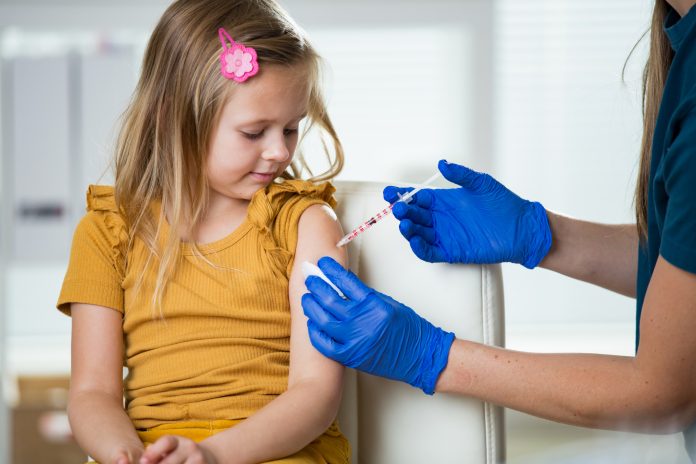New UKHSA and NHS England data reveal 18.6% of children have not received their pre-school booster vaccine, a vital vaccine for protecting against serious illnesses
As children return to school in England this September, the UKHSA and NHS England have issued a plea to parents to check their child’s vaccine records and catch up on any missed vaccinations with their GP practice, specifically the pre-school booster vaccine. The appeal follows annual vaccine uptake data that reveal that almost one in five children is not fully vaccinated.
18.6% of children do not have the pre-school booster vaccine
The latest annual uptake data on childhood vaccines (April 2024-March 2025) reports on children who turned five between 1 April 2024 and 31 March 2025. In England over the last decade, the coverage or uptake rates for the pre-school booster peaked at 86.3% in 2015-2016. The latest data, at 81.4%, is nearly 5% lower than the peak. Outside of London, the coverage for England was 85.0%.
The data revealed that 18.6% of children have not received their pre-school booster vaccine. The 4-in-1 pre-school booster vaccine helps protect against four serious illnesses – polio, whooping cough, tetanus, and diphtheria. The vaccine is given from 3 years 4 months of age and boosts the protection provided by previous vaccines given to babies. It ensures children have essential protection as they start primary school.
Notably, the data indicate that vaccine uptake for three doses of the 6-in-1 vaccine by the age of 5 in England increased by 0.2% to 92.8%. This increase is encouraging, but healthcare professionals are urging for further progress towards reaching 95.6%, which was the peak in the last 10 years.
Too many children are starting primary school without complete protection
NHS England and regional ICB teams have conducted vaccine drives to encourage parents to vaccinate their children, including hosting extra clinics, catch-up opportunities in schools and localised outreach projects to target low uptake areas across the country. Early results from today’s released data indicate that the decline in the MMR1 vaccine has stabilised, with 91.8% of children receiving their first dose by age 5 years.
Childhood vaccination coverage varies across England, with London having the lowest uptake for all indicators.
In England, areas (upper-tier local authorities) in the north consistently outperform other areas. Pre-school booster rates for Cumbria (now two unitary authorities, Cumberland Council and Westmorland and Furness Council) are at 94.3%, compared with County Durham and East Riding of Yorkshire at 93.7%, Barnsley at 92.8%, and Northumberland at 92.3%; these rates are higher than the overall England coverage of 81.4%.
Dr Mary Ramsay, Director of Immunisation at UK Health Security Agency, said: “Ensuring all our children starting primary school are fully protected is essential to keep them safe and give them the best opportunity to thrive at school. We know that most parents want to do what is best for their children and have confidence and trust in NHS childhood vaccinations, which save thousands of lives and prevent tens of thousands of hospital admissions every year. However, it can be challenging to juggle busy lives and work, finding time to book and attend GP appointments.
Far too many children will not be fully protected and safe when starting school, and are at risk of serious diseases, such as measles and whooping cough, that have in recent years caused outbreaks. Measles, being the most infectious disease, is the ‘canary in the coalmine’ and a wake-up call that urgent action is needed to stop the very real risk of other diseases re-emerging.
That is why there needs to be a concerted effort to provide these vitally essential vaccines, to make time to speak with and reassure any parents who may have concerns, and to make it as easy as possible for their children to receive the vaccination.
Parents should check their children are up to date with all their jabs and, if not, contact their GP practice as soon as possible.”
Health Minister Stephen Kinnock said: “Too many children are starting primary school without complete protection against preventable and potentially serious illnesses like measles, whooping cough and mumps.
We know parents want to do right by their children, and we’re working with the NHS to make it easier for all families to access these life-saving vaccines.
Vaccines save thousands of lives every year and prevent countless hospital admissions. I urge all parents to check their child’s vaccination record and contact their GP practice if any jabs are missing.”











